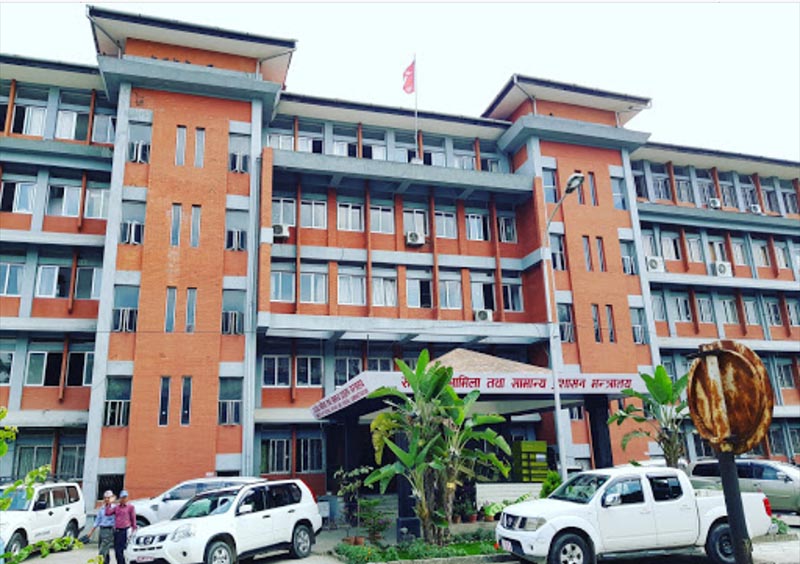Give priority to needy people in relief distribution: MoFAGA
- Pregnant women have been affected due to COVID-19
Kathmandu, April 5
The Ministry of Federal Affairs and General Administration has issued a circular to all local levels to provide necessary relief materials to persons and groups who are in need of special protection, as the country reels under the threat of coronavirus pandemic.
In response to a letter from the Ministry of Women, Children and Senior Citizens, the MoFAGA urged local governments to accord special priority to senior citizens, women, differently-abled persons, children and sexual minorities while carrying out relief operation in their respective areas.
“In case senior citizens and differently-abled persons have to be kept in quarantine or isolation, the local levels concerned will have to make special arrangements.
The local levels need to ensure that women with severe disabilities get minimum basic materials, including sanitary pads, in quarantine or isolation,” it said.
Similarly, the local levels are required to distribute relief materials and daily essentials to stateless people, persons with HIV/AIDS and single women living in shelter homes after collecting their authentic data. The local levels have also been told to give priority to Dalit women labourers, including those from Badi, Musahar and backward communities, in distribution of relief package.
“The local levels should make special arrangements for minimum basic materials and relief package for women working in the informal sector, living in shelter homes, victims of Gender Based Violence and human trafficking victims,” the circular said. The MOFAGA also urged the local governments to regularise ambulance service with special priority for pregnant and lactating women for safe motherhood. Pregnant women have been affected, as many hospitals denied them entry into the health facilities amid the COVID-19 scare.
Postponement of delivery date may threaten the life of mothers and newborns.
The MoFAGA said children taking refuge in care centres and gender and sexual minorities were also in need of special protection from the government. Local levels have been distributing relief materials to needy people, including daily wagers, through one-door system. Daily wagers were rendered jobless in cities after economic activities came to a grinding halt.
With the resultant slowdown of economic activities and closure of businesses, many people are living with inadequate access to basic necessities such as health care, food and accommodation.
The impacts of COV- ID-19 are felt everywhere, but the most vulnerable people are especially at high risk.
A version of this article appears in e-paper on April 06, 2020 of the Himalayan Times.






